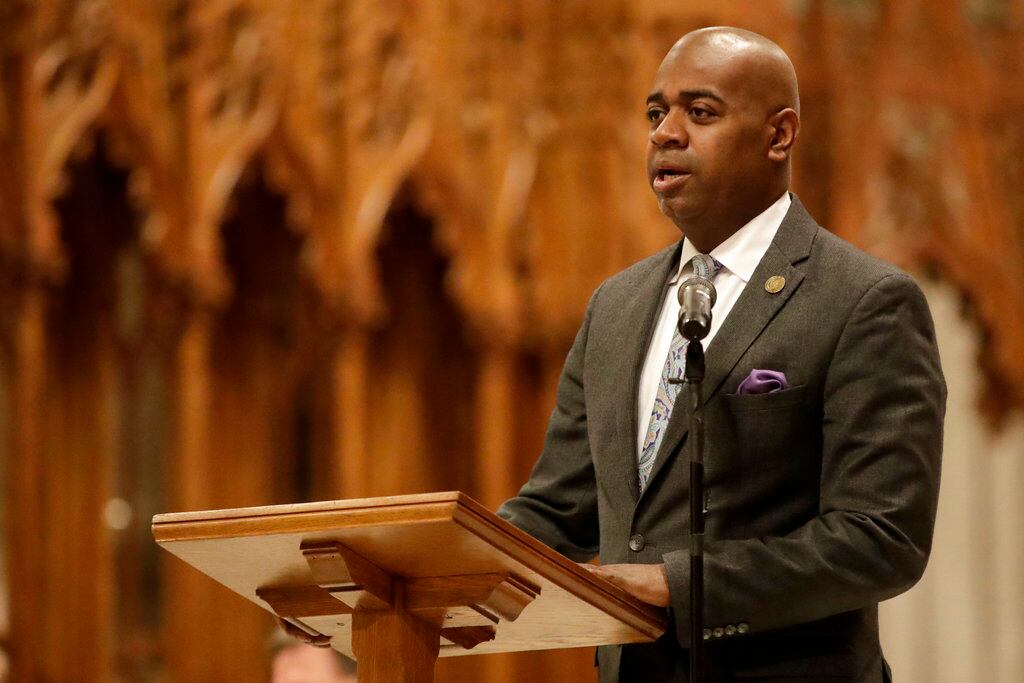As we celebrate Black History Month, Cheddar is highlighting prominent Black Americans who are carving their own historic paths and trailblazing in their industries. While Black History Month has become synonymous with reflecting on past achievements of Black Americans, it is important that we acknowledge today's historic feats as they happen.
For years, New Jersey's most populous city, Newark, has faced problems ranging from gun violence to police brutality, and, at one point in time, it was known for the city's high number of carjackings. In 2014, Newark native, councilman, and spoken word artist Ras Baraka was elected to lead the city as the 40th mayor and while progress has been slow, he's been committed to changing the Brick City's landscape.
However, the COVID-19 pandemic presented the city with a number of challenges, including increased gun violence. In 2020, the Baraka administration created the Office of Violence Prevention and Trauma Recovery, which offers support to at-risk youth, adults, and families who have gone through the criminal justice system either as victims or offenders. The goal of the office is to break generational cycles that lead to substance abuse and violent crimes.

Last year, the mayor also announced a plan to invest $19 million over three years to reduce violence across the city.
"$19 million is being used to give to community-based organizations that have been doing anti-violence work and trauma recovery work in the city. It is an opportunity for them to expand their work throughout the city and not just in one particular area, to give them the resources that they need to work alongside police officers, which is what they're doing now," Baraka told Cheddar.
He isn't just coming up with solutions to combat violence across the city. He led Newark out of a water crisis that impacted some 200,000 residents, particularly young children. Shortly after lead was discovered in Flint, Michigan water system in 2014, Newark came under fire when elevated lead levels were found in multiple public school districts.
As of August, nearly all 23,000 lead service lines in Newark were replaced with copper pipes. This was a major win for the Baraka administration and the city of Newark, especially after the National Resources Defense Council dropped a lawsuit against the city and its officials for violating safe water laws. The environmental group said the city showed true commitment with swift action in replacing the lead pipes. In comparison, Flint, Michigan, was ordered by a court to begin free lead pipe replacement in 2017 and so far has replaced around 10,000 pipes. Baraka noted that there was a sense of urgency to come up with unconventional ways to raise capital in order to get the job done faster.
"We weren't satisfied with the 10-year prospects of this that they gave us." Baraka told Cheddar. "I just thought that was entirely too long. It felt like a lifetime to me. I don't even know if I'm going to be around in 10 years, so we wanted to do something very quickly and so we did it in three."
Read more of our "Celebrating Movers and Shakers This Black History Month" series:



